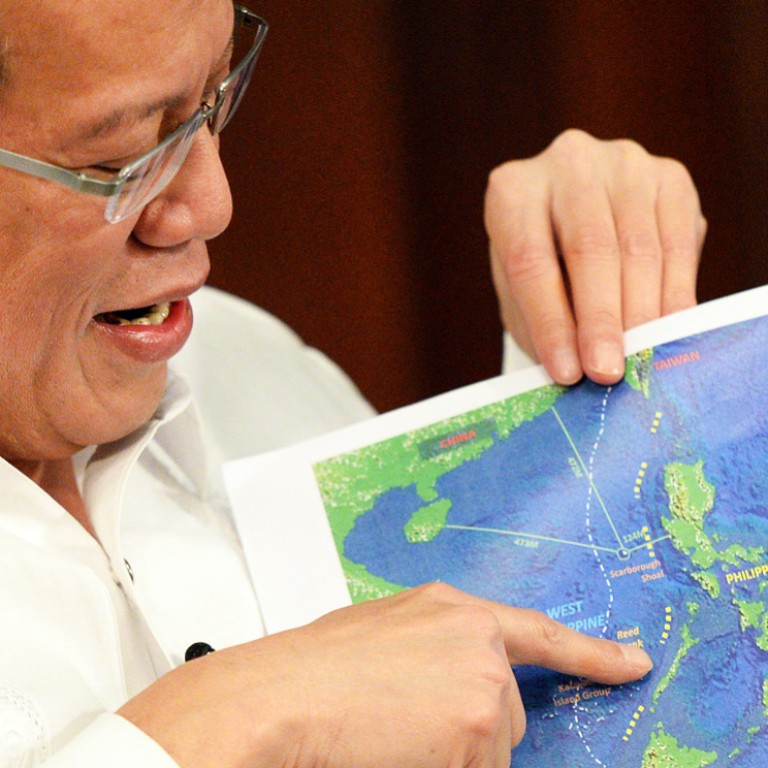
World should fear Beijing’s claims to South China Sea, says Philippine’s Aquino
China’s increasingly assertive actions raise the spectre of other nations having access cut to international shipping lanes and fishing grounds in the sea, Aquino says
China’s efforts to stake its claim to most of the South China Sea should spark fear around the world, with military conflict possible, Philippine President Benigno Aquino said.
In an interview with AFP, Aquino also warned that China’s increasingly assertive actions raised the spectre of other nations having access cut to international shipping lanes and fishing grounds in the sea.
”Does it engender fear? Yes, I think it should engender fear for the rest of the world,” Aquino said when asked to assess Chinese government moves in recent years to assert its sovereign claims in the sea.
The question of it escalating to something beyond everybody’s control should be at the top of the minds of all world leaders
Aquino said that, while he did not believe China intended to engage in a military conflict over the territorial disputes with the Philippines and other Asian nations, that was a possibility.
”The question of it escalating to something beyond everybody’s control should be at the top of the minds of all world leaders,” he said.
China claims sovereignty over most of the South China Sea, including areas just off the coasts of other Asian nations, using an assertive demarcation line that first appeared on Chinese maps in the 1940s.
The Philippines, Vietnam, Malaysia, Brunei and Taiwan have overlapping claims.

Following a tense stand-off between Chinese maritime patrol vessels and the Filipino Navy in 2012, China took control of a rich fishing ground called Scarborough Shoal that is within the Philippines’ exclusive economic zone.
Satellite images have also shown China recently embarking on major construction activities to expand Chinese-controlled reefs and islets in the Spratly Islands, one of the biggest archipelagos in the sea.
China last week defended its construction work in the Spratlys, while insisting it has sovereign rights to most of the sea.
The images published this month on the website of the Centre for Strategic and International Studies showed a flotilla of Chinese vessels dredging sand onto a feature known as Mischief Reef.
Images of other outcrops in the Spratlys showed aircraft runways appearing from jungle, smooth-sided solid masses where there once was coral, and man-made harbours replacing natural reefs.
Aquino said China was building two airstrips on the expanded land formations, which posed defence concerns for the Philippines.
”With these new features, the two airstrips that come to my mind, once operational, puts into effective range the entire country,” Aquino said.
”The [Chinese] turnaround time, the sustainability of operations ... are enhanced by all of these airstrips, and potentially other naval ports.”
US President Barack Obama has criticised China’s use of “sheer size and muscle” to enforce its territorial claims.
The Philippines is a military ally of the United States. During a visit to Manila last year, Obama said America had an “iron-clad” commitment to defend the Philippines.
